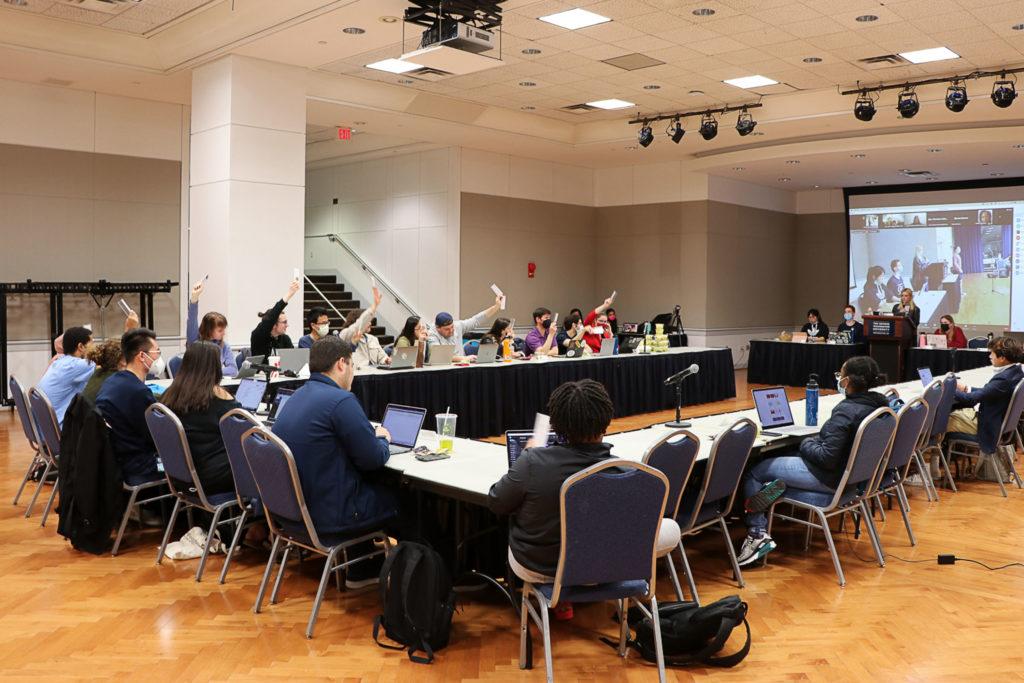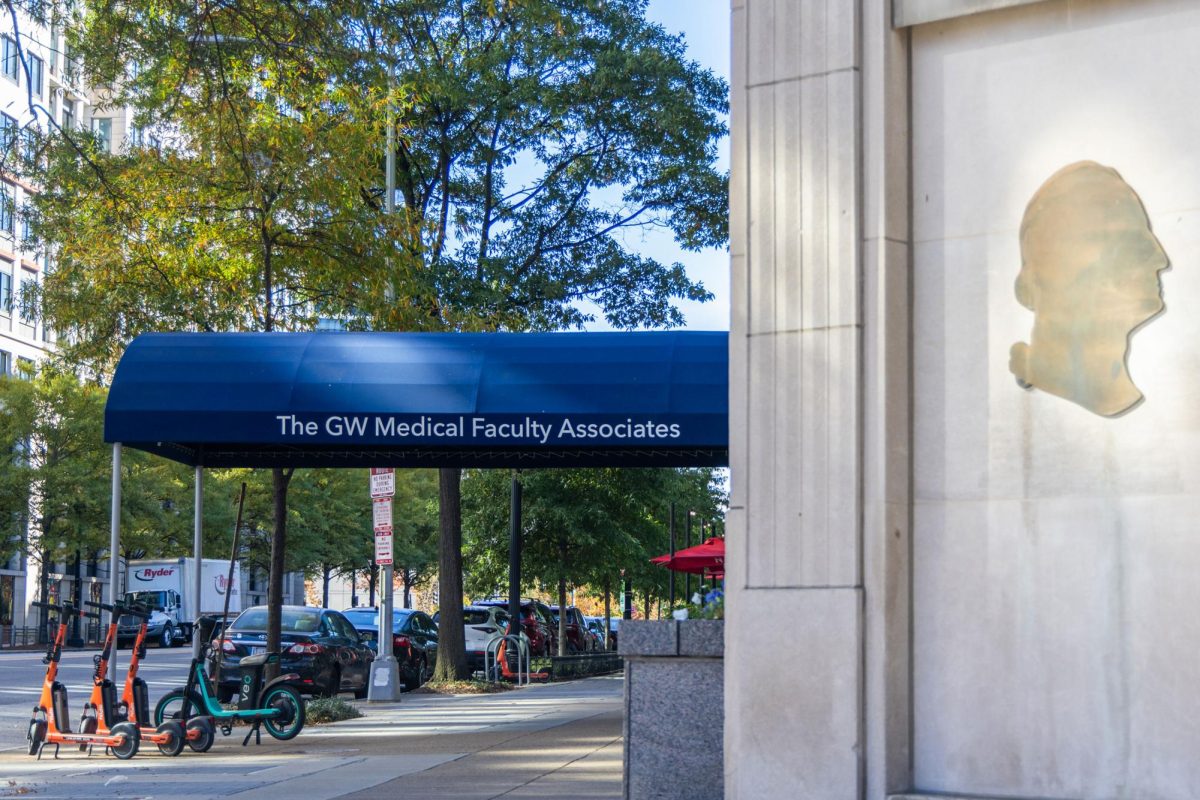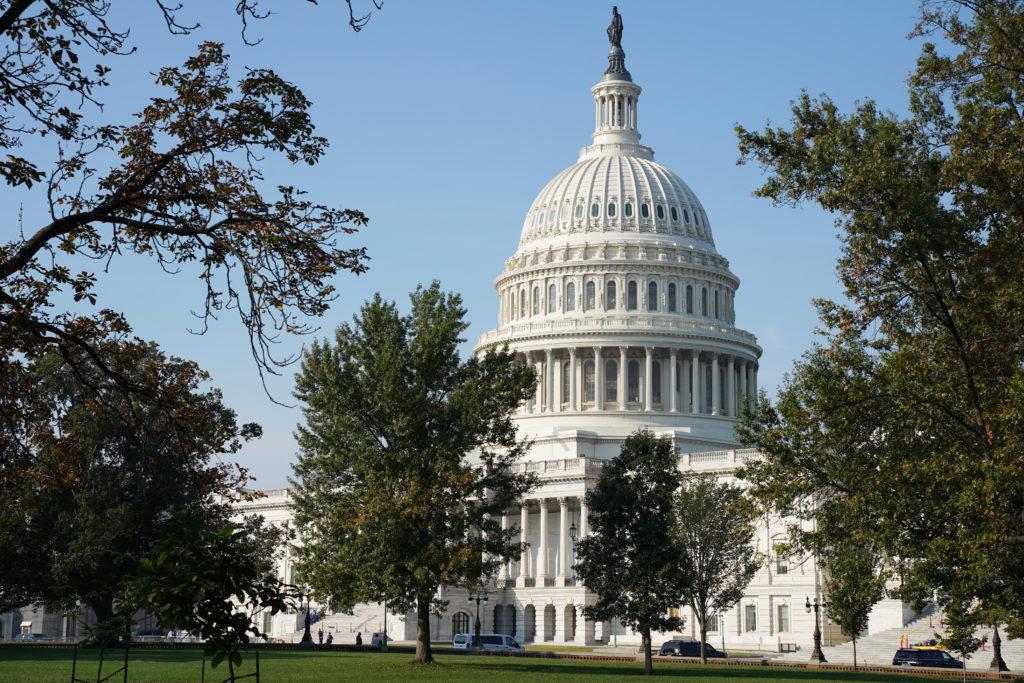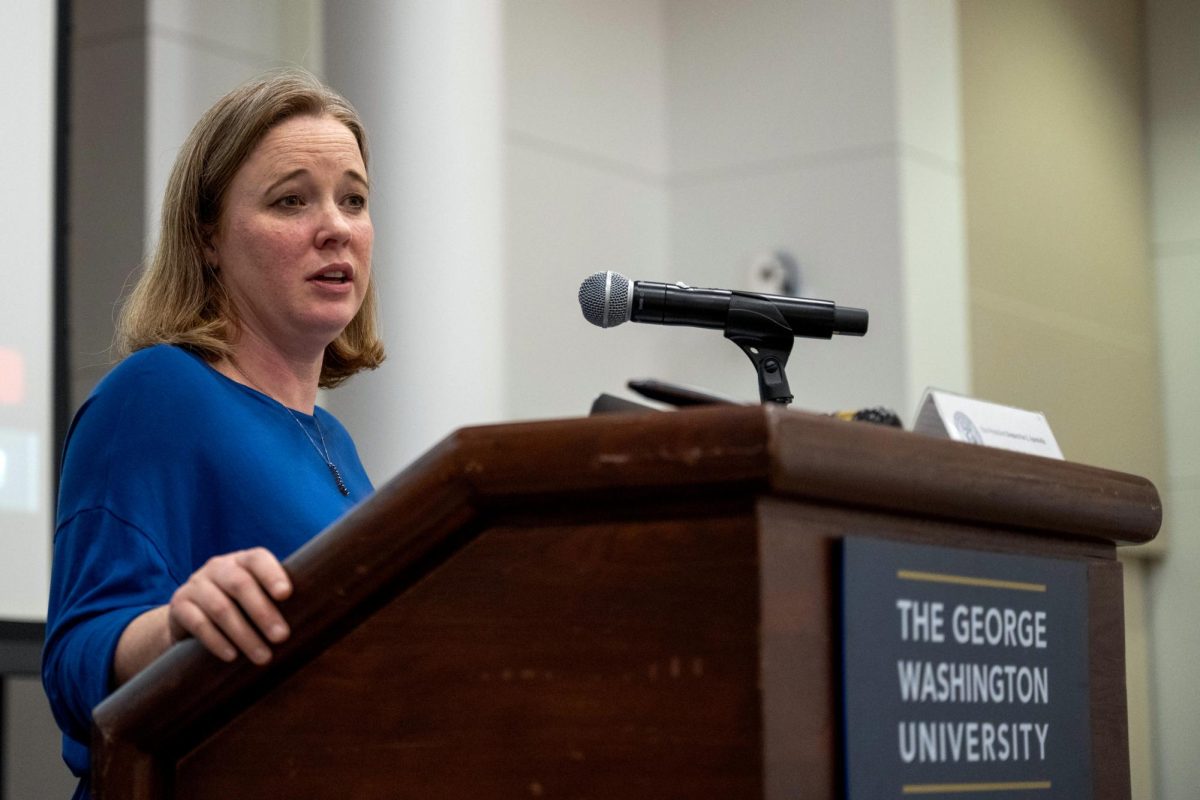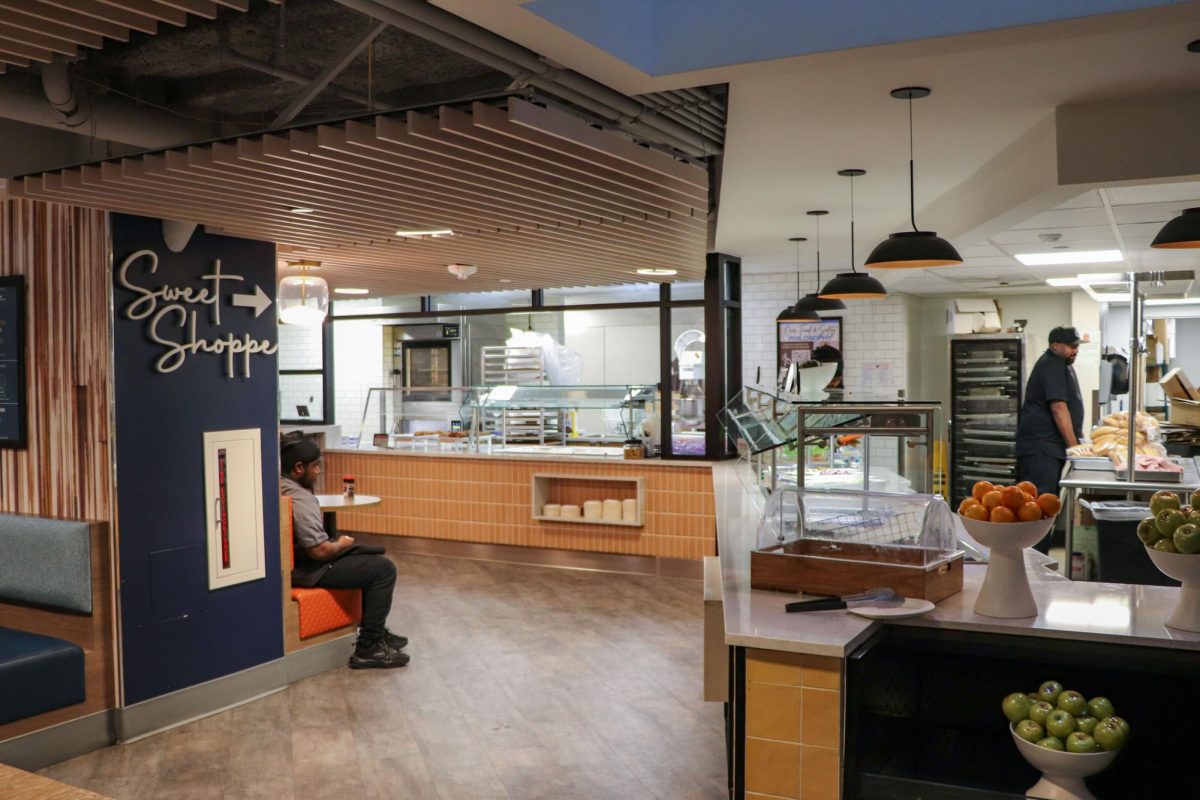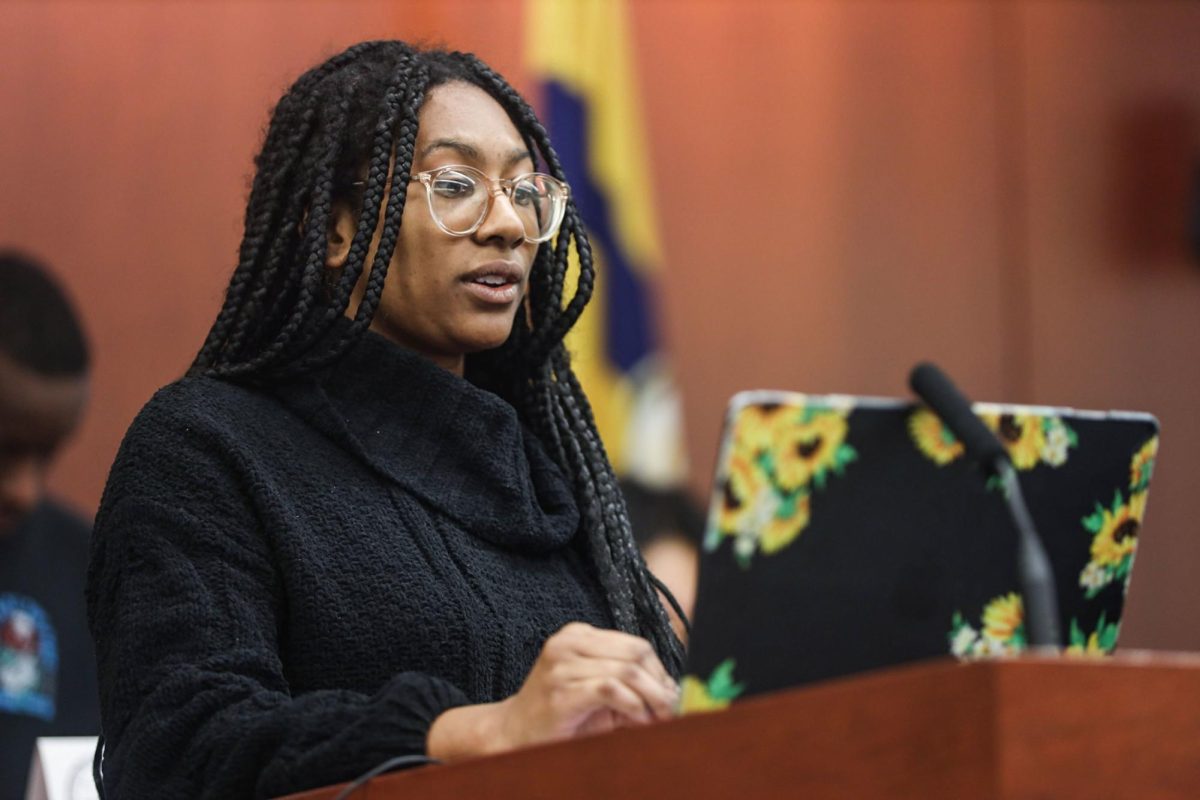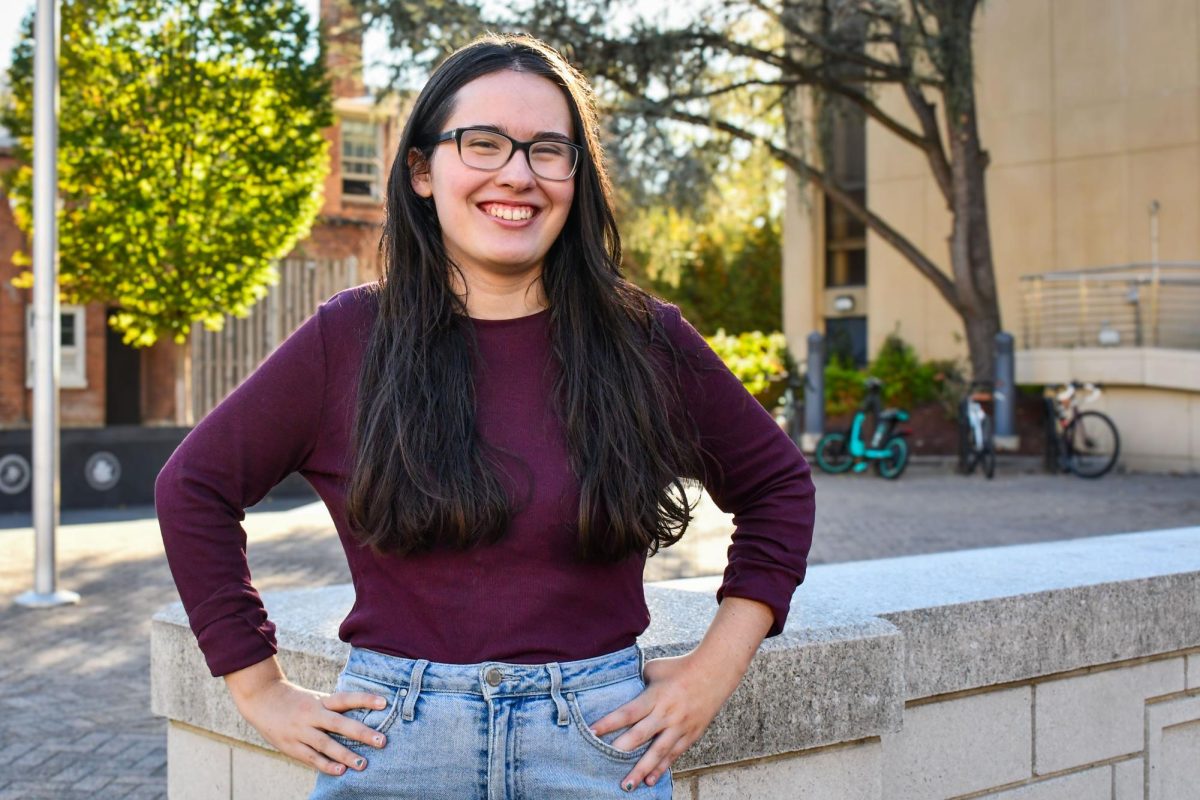As the University community re-evaluates its shared governance principles, students have largely remained excluded from the process.
Over the past academic year, faculty, administrators and the Board of Trustees have worked to develop a mutual understanding of shared governance in Faculty Senate meetings, town halls and surveys, while the student body has remained absent throughout the process. Students, including Student Association leaders, said most of the student body is unfamiliar with shared governance and how it could affect their lives at GW because of a lack of understanding of how strategic decision-making happens at the University.
SA President Christian Zidouemba said students are not the “most engaged” in University governance and how policies are made because of a lack of clear communication between University leaders and the student body. He said he hopes more students will bring their concerns to their SA representatives to become involved in how GW functions next year, as officials review shared governance principles and search for a new University president.
“As a student leader, you want to bring concerns that are related to your students, whether it’s admissions, whether it’s recruiting diverse people and people to come to our University,” he said in an interview. “Those things need to come not only from the faculty and not only from the Board but also the student leadership.”
The Board is set to sign off on a series of shared governance principles that the Faculty Senate approved last month highlighting some of the principles of shared governance, saying the faculty should have a meaningful role in “key decision-making” and should be primarily responsible for certain policies relating to GW’s long-term “academic mission.” The resolution did not mention the SA or how GW’s student body would play a role in shared governance.
Zidouemba said the Board of Trustees could do a better job at communicating major decisions, like raises in tuition or updates to shared governance. He said students often don’t understand why officials are making certain decisions and should work to explain how those policies will affect students.
“I wouldn’t say they’ve done a poor job, but I would say that it can be improved, making sure that students know why a certain decision was made and what the impact is and what we’re seeing that impact to be in the next 10 years,” Zidouemba said.
The Board is set to review the Faculty Senate’s recommendations on shared governance and decide how governance at the University will proceed and the role that faculty bodies will play in major decision-making at its meeting Friday.
Zidouemba said if the Board doesn’t introduce a solution that includes input from both faculty and students, then the SA should more directly voice its concerns with the process.
“If the report comes and there is a thing that’s not benefiting the whole entire student, then we can have a conversation,” he said. “As a president, you have a say and some of the decisions and being able to speak and bring new concerns that have not been brought up is essential.”
While the Faculty Senate has generally not included the SA in their resolutions surrounding shared governance, officials have included student input in areas like environmental and governance disputes, but have left them out of their shared governance review.
University spokesperson Tim Pierce said officials have expanded the number of opportunities for students to play a role in GW’s governance and strategic decisions over the past few years, like allowing the SA president to sit on the Board’s presidential search committee.
“Throughout the last several years, students have gained numerous additional opportunities to provide input on University matters, including through regular meetings between student government leadership and the president, as well as the Board of Trustees expanding the role of student leaders at meetings and on committees and task forces,” he said in an email. “In fact, the Student Association president’s role as an official Board Observer was codified in the bylaws in 2019.”
SA Vice President Yan Xu said students should play a more active role in University governance and bring their concerns to SA meetings and hearings through their elected representatives. He said the SA does play a role in some parts of GW’s administration, like through the University’s presidential search committee, where Zidouemba holds a seat.
“GW students have a seat at the table, and I am looking forward to continuing to develop a positive and collaborative working relationship with the Board, administrators, faculty members and University staff with a spirit of mutual respect and mutual responsibility,” he said in an email.
Xu said the University should consult with the different parts of the GW community, including the student body, when making major policy or strategic planning decisions.
“The shared governance’s main focus is to strengthen participation and coordination among all parties of the GW community regarding primary issues that may affect the GW community,” he said. “GW as a higher education institution can benefit from consultation and discussion with representatives of parties of the GW community.”
Half a dozen students said they were not familiar with the shared governance process at GW but support allowing student representatives more of a direct say in areas like the presidential search process and tuition rates.
Alex Haidar, a sophomore studying international affairs, said the SA should have more policy-making authority at GW because the student body is currently unable to criticize or check decisions made by the Board or administrators.
“As students, we feel like we don’t really have any power of doing anything, even the Student Association doesn’t really have that much influence in trying to convince the school to really do anything,” he said. “So it would be good to get students involved in actual decision making.”
Farzona Comnas, a senior studying international affairs, said movements at other universities to allow student governments to have a say in governance – including other D.C.-area schools and peer institutions like Howard and New York universities, where disputes over areas like housing and tuition sparked demonstrations over the schools’ governance – open up more possibilities for increased shared governance at GW.
“I’d be curious as to how student voices could be guaranteed to be heard, rather than just being present in meetings and how they could actually be a legitimate partner with the Board currently,” Comnas said.
Caitlin Kitson contributed reporting.


